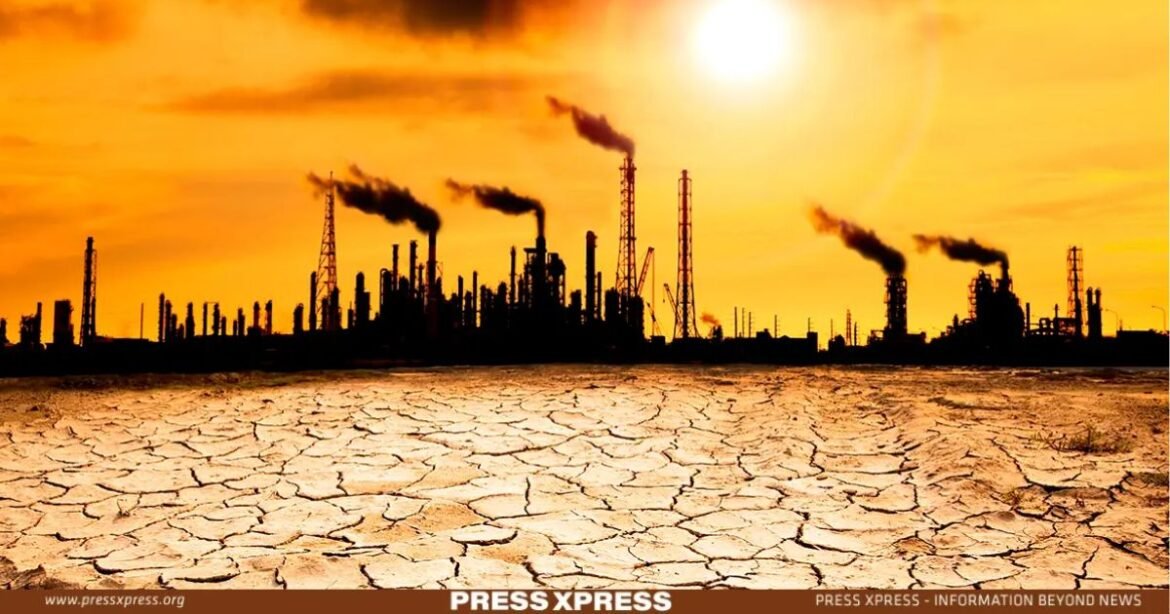As the sun-baked landscapes of Syria, Iraq, and Iran grapple with a once-in-a-quarter-millennium drought, a groundbreaking study by international climate scientists unveils a stark truth—human-driven climate change is the culprit. The cascading effects of this ecological crisis are exacerbated by conflict, political instability, and historical vulnerabilities, leading to a humanitarian disaster of monumental proportions.
A recent rapid analysis conducted by a group of global climate scientists at World Weather Attribution revealed that the drought in West Asia, initiated in July 2020, is primarily a result of above-average temperatures causing the evaporation of meager rainfall.
You can also read: Global Strategies and Agreements to Fight Climate Change
If the Earth hadn’t warmed by 1.2 degrees Celsius (2.2 degrees Fahrenheit) since the mid-19th century, there wouldn’t be any drought, according to Friederike Otto, the lead author and a climate scientist from Imperial College London.
Historical records show that in the Tigris-Euphrates basin, encompassing large areas of Syria and Iraq, droughts as severe as this occurred about once every 250 years prior to global heating. Today, they are expected to occur approximately once every decade. The study also highlights that not only has the occurrence of extreme droughts in Iran increased to every five years on average due to global heating from fossil fuel consumption, but pre-existing vulnerabilities stemming from years of conflict and political instability have amplified the human impact, leading to a full-fledged humanitarian disaster.
Contributing Factors for Climate Change: War, Political Instability, and Vulnerability
Rana El Hajj, from the Red Cross Red Crescent climate centre, pointed out: “Conflict not only heightens susceptibility to drought through contributing to land degradation, compromised water management, and deteriorating infrastructure but research indicates that, particularly in this region, climate change exacerbates the threat of conflict.”
Dr. Friederike Otto, based at Imperial College London, UK, emphasized: “The escalation of droughts, such as this one, will persist unless we cease the burning of fossil fuels. Should the global community fail to commit to phasing out fossil fuels at the upcoming UN climate summit (Cop28), the repercussions will be widespread: increased water shortages, more displaced farmers, and rising food costs for many at supermarkets.”
The drought’s impacts have reverberated extensively, leading to mass migrations from rural regions, surging food costs, wildfires, air pollution, and the depletion of rivers and lakes for fishing. In Syria, 2 million people from rural areas have been displaced, and an alarming 60% of the population, or 12 million individuals, are grappling with food insecurity. Virtually every province in Iran has faced severe consequences from the drought, with subpar harvests triggering sharp increases in food prices.

Water resource crunch-Another major challenge
As per the analysis by the Brookings Institute, a US nonprofit specializing in public policy, the Middle East and North Africa face the highest susceptibility to climate change, especially considering the precarious security conditions in certain areas. Iran has experienced extreme heatwaves, reaching life-threatening levels, with temperatures soaring to 51 degrees Celsius (123 degrees Fahrenheit) this year. The scarcity of water has not only triggered civil unrest and regional tensions but also caused significant internal displacement.
Co-author Ben Clarke, affiliated with the Grantham Institute of Climate Change and Environment at Imperial College London, expressed that the study sheds significant light on the impacts of climate change in a vulnerable region that has been insufficiently studied. Clarke shared, “The robustness of the upward trend in temperatures across the region was genuinely surprising.”
The citizens of Syria, in particular, have faced numerous water-related challenges stemming from the extensive displacement caused by the civil war, inadequate water supply management, infrastructure damage, and the manipulation of water access as a tool of warfare. Concurrently, the implementation of Turkish dam projects has contributed to the depletion of water levels in the Euphrates River, exacerbating the already dire conditions in Syria and Iraq.
Global Pledge to Limit Warming to 1.5°C at Risk: Current Trajectory at 2.7°C
Previous World Weather Attribution investigations have indicated that climate change has heightened the impact of severe weather occurrences worldwide. Examples include a heatwave in the Mediterranean, flooding in Nigeria and West Africa, drought in the northern hemisphere, and inundation in Pakistan, as highlighted in earlier studies.
Despite countries committing to limiting global temperature rise to 1.5 degrees, current policies are steering the world towards an increase of approximately 2.7°C, as reported by Climate Action Tracker. The World Meteorological Organization anticipates a likely breach of the 1.5-degree threshold within the next five years.
Nevertheless, viable answers to address climate change exist, and by taking decisive measures, the global community can still achieve the 1.5-degree goal. During recent pre-COP discussions, United Nations Secretary General Antonio Guterres emphasized this point. “While the opportunity to prevent the worst outcomes and restrict warming to 1.5 degrees Celsius is quickly diminishing, it remains open—albeit narrowly. This is the pivotal juncture,” he conveyed to delegates. “We possess the necessary tools and technologies, leaving us with no valid reason to fail in our delivery.”
In the arid echoes of a changing climate, the stark reality of a once-in-a-quarter-millennium drought in West Asia beckons our attention. The profound impacts on Syria, Iraq, and Iran unveil a distressing synergy of human-induced climate change, regional conflicts, and political instability. The revelation that this dire phenomenon would have been nonexistent without a 1.2-degree Celsius warming is not just a scientific fact; it’s a compelling call to action.


